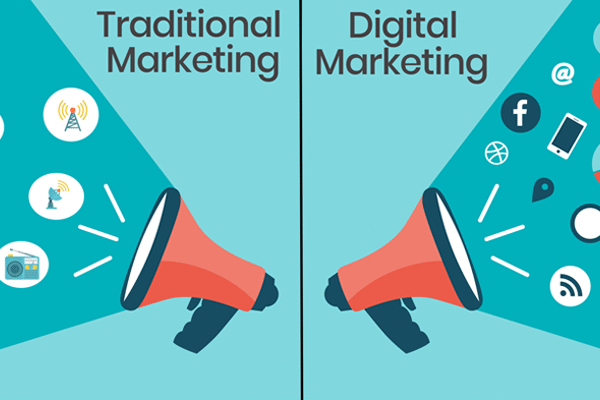Social media has become a popular and powerful tool for organizations to reach their target audience, build brand awareness, and drive sales. If you have a small business, leveraging social media marketing can effectively promote your products or services to a broader audience. This article will discuss strategies to help you leverage social media marketing to promote your small business.
Define Your Target Audience: Before using social media to promote your business, you must define your target audience. Whom are you trying to reach? What are their interests, pain points, and preferences? Once you’ve understood your target audience, you can create content that resembles with and engages them.
Choose the Right Platforms: Not all social platforms are equal. Each platform has its strengths, weaknesses, and user demographics. For instance, if you are targeting a younger audience base, you may want to focus on platforms like TikTok or Snapchat. If your audience is more professional, LinkedIn may be a better choice. Research the platforms most relevant to your business and target audience, and focus your efforts on those platforms.
Create Quality Content: Once you have defined your target audience and chosen the right platforms, you must create quality content that resemble with your audience. Your content should be compelling, visually appealing, informative, and engaging. Consider leveraging a mix of formats, such as images, videos, and infographics, to keep your audience interested and engaged.
Engage with Your Audience: Social media is a two-way conversation. Engaging with your audience by responding to comments and messages, asking for feedback, and participating in conversations is essential. This helps build trust and credibility with your audience and can increase brand loyalty.
Utilize Paid Advertising: While organic reach on social media can be limited, paid advertising can help you reach a wider audience. Platforms like Facebook, Instagram, and LinkedIn offer various advertising options, including sponsored posts, display ads, and video ads. By investing in paid advertising, you can increase your reach and drive more quality traffic to your website.
Analyze Your Results: Analyzing your social media marketing efforts is crucial to see what’s working and what’s not. Use analytics tools to track metrics like engagement, reach, and conversions. This will help refine your strategy and make data-driven decisions to improve your results.
Some Additional Tips
Develop a social media marketing plan that outlines your goals, target audience, content strategy, and advertising budget.
Use keyword research tools to identify high-search volume keywords relevant to your company and incorporate them into your social media content.
Monitor social media trends and conversations in your industry to stay up-to-date with what’s happening and identify engagement opportunities.
Collaborate with other businesses, influencers, and industry experts to expand your reach and credibility on social media.
Use hashtags strategically to increase your visibility and reach on social media.
Respond quickly to customer inquiries and complaints to maintain good customer relations and improve your brand reputation.
Monitor your competitors’ social media activity to stay ahead of the curve and identify potential gaps in the market.
Create social media campaigns around holidays, events, or special occasions to drive engagement and sales.
Utilize social media contests and giveaways to increase engagement and generate leads.
Leverage user-generated content (UGC) to showcase your products or services and build social proof.
Use social listening tools to check brand mentions and sentiment to understand how your brand is perceived online.
Experiment with different content formats like live videos, stories, and reels to keep your audience engaged and interested.
Use social media analytics tools to measure the success of your social media campaigns and adjust your strategy accordingly.
Optimize your social media profiles by including a clear business description, links to your website, and visually appealing cover photos.
Use retargeting ads on social media to reach people who have previously interacted with your brand or visited your website.
Use Facebook Business Manager or similar tools to manage multiple social media accounts in one place and streamline your workflow.
Attend industry events and workshops to network with other businesses and stay up-to-date with the latest trends and best practices.
Use humour and storytelling in your social media content to connect with your audience personally.
Consider partnering with a social media marketing agency or consultant to help you develop and execute a successful social media strategy.
Be patient and consistent with your social media marketing efforts, as it may take time to see significant results. Don’t give up too soon!
Social Media Marketing Strategies To Boost Your Business
Build a community around your brand by creating a Facebook or LinkedIn group where customers can connect and share their experiences.
Leverage influencer marketing to reach a broader audience base by partnering with influencers in your industry with a significant social media following.
Leverage social media to showcase your company culture and values to attract like-minded customers and employees.
Use social media to highlight customer success stories and testimonials to build social proof and trust with your audience.
Use social media to provide customer support and answer common questions, which can help reduce support costs and improve customer satisfaction.
Use LinkedIn to connect with potential business partners, investors, and employees by sharing thought leadership content and participating in industry discussions.
Use social media to promote your company’s social responsibility initiatives, and support causes that align with your brand values.
Use Instagram and Pinterest to showcase your products or services visually, which can help attract more customers and drive sales.
Use social media to launch a new product or service and build buzz around it through teasers, sneak peeks, and exclusive offers.
Use social media to offer exclusive discounts and promotions to your followers, which can help incentivize them to purchase.
Use social media to participate in relevant industry events and conferences by sharing live updates and engaging with other attendees.
Use social media to create relationships with journalists and media outlets by sharing industry insights and offering expert commentary.
Use social media to showcase your team members and their expertise, which can help humanize your brand and build trust with your audience.
Use social media to share behind-the-scenes content, such as how your products are made, or your team works, which can help build transparency and authenticity.
Use social media to launch a customer referral program, where customers can earn rewards for referring their friends and family to your business.
Use social media to highlight industry news and trends, which can help position your business as a thought leader and attract new customers.
Use social media to offer free resources and tools, such as eBooks or webinars, which can help attract new leads and build your email list.
Use social media to collaborate with other businesses or influencers on co-branded campaigns or contests, which can help increase your reach and engagement.
Use social media to participate in relevant Twitter chats or LinkedIn groups where you can connect with other professionals in your industry and share your expertise.
Use social media to offer exclusive access to events, such as product launches or VIP parties, which can help incentivize customers to engage with your brand.
Benefits of Social Media Marketing:
Increased brand awareness and recognition
Cost-effective marketing compared to traditional methods
Ability to reach a wider audience and target specific demographics
Improved customer engagement and relationships
Access to real-time customer feedback and insights
Ability to measure and track campaign success with analytics tools
Improved search engine rankings and website traffic
Increased customer loyalty and advocacy
Ability to humanize your brand and build trust with your audience
Opportunity to stay up-to-date with industry trends and news.
Drawbacks of Social Media Marketing:
Potential for negative feedback and comments
Risk of negative online reputation and crisis management
The time-consuming process of creating and maintaining the content
Difficulty in cutting through the noise and standing out in a crowded marketplace
Dependence on the algorithm changes of social media platforms.
How To Master Your Content Game For Effective Social Media Marketing
Define your target audience: To create compelling content, you need to know your target audience. Define their demographics, interests, and pain points to tailor your content to their needs.
Develop a content strategy: A content strategy helps you plan, create, and distribute content that aligns with your business goals. It includes content types, themes, and publishing schedules.
Use visuals: Visuals are more appealing and engaging than plain text. Use images, infographics, and videos to make your content more visually attractive and shareable.
Optimize for each platform: Each social media platform has its requirements for content types and sizes. Optimize your content for each platform to ensure it looks good and performs well.
Focus on storytelling: People remember stories more than facts. Use storytelling techniques to make your content more relatable, emotional, and memorable.
Be consistent: Consistency is critical to building a solid brand and keeping your audience engaged. Develop a consistent voice, tone, and style for your content.
Experiment with different formats: Experiment with different content formats, such as live videos, podcasts, and interactive content, to keep your audience engaged and interested.
Measure and adjust: Use analytics tools to measure the performance of your content and adjust your strategy accordingly. Monitor engagement, reach, and conversion rates to see what works and what doesn’t.
Stay up-to-date: Social media constantly evolves, so stay up-to-date with the latest trends, features, and best practices. Attend webinars, read blogs, and follow industry leaders to stay ahead.
In conclusion, social media marketing is essential for small businesses looking to increase their brand awareness, build customer relationships, and drive sales. By developing a social media strategy tailored to your business goals and target audience and incorporating best practices such as keyword research, social listening, and influencer marketing, you can effectively leverage social media to promote your business and stand out in a crowded marketplace. With patience, consistency, and a willingness to experiment with different tactics and content formats, you can use social media to connect with your audience, build your brand, and achieve your business objectives. So, don’t hesitate to start social media marketing and see the results for yourself!



